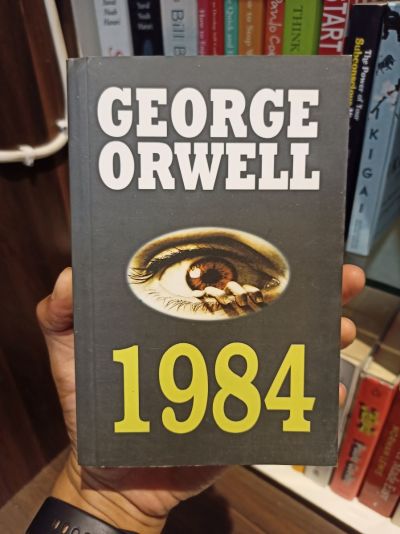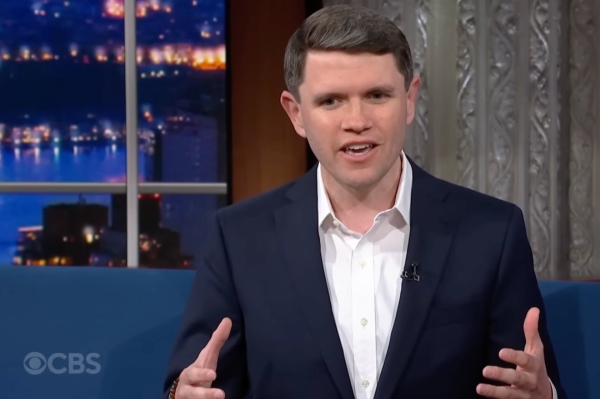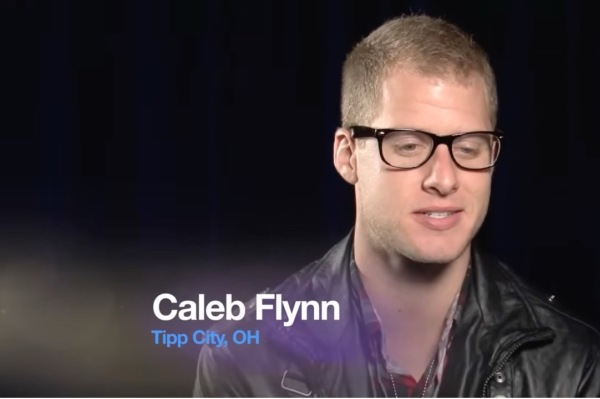Britain’s 1984 moment

Apparently, the United Kingdom has decided to shift its loyalties from courageously defying tyranny in the 20th century to embracing it in the 21st. Recently, a “conservative”-led British Parliament made George Orwell’s fictional accounts of “thought crime” a reality. After establishing censorship zones around abortion clinics in England and Wales, the MPs voted 299-116 to continue criminalizing even silent prayer in the vicinity of such clinics.
As a lawyer for the U.K.’s Alliance Defending Freedom put it:
"Today’s vote marks a watershed moment for fundamental rights and freedoms in our country. Parliament had an opportunity to reject the criminalisation of free thought, which is an absolute right, and embrace individual liberty for all. Instead, Parliament chose to endorse censorship and criminalise peaceful activities such as silent prayer and consensual conversation."
The law is no idle threat. Last month, Isabel Vaughan-Spruce and Sean Gough were thankfully found not guilty in a Birmingham, England, court for the supposed crime of praying in public. Neither were arrested for some kind of loud, amplified prayer that disrupted public activities or woke people in the dark of the night. They were arrested for praying silently outside an abortion clinic. While Gough held a sign saying that he was praying for free speech, Vaughan-Spruce was arrested because the police thought she “might” be praying. Gough was even rebuked by the police for wearing his priestly cassock since it “could” be seen as intimidating.
On March 6, the day before the recent vote, Vaughan-Spruce was arrested again for praying silently near an abortion facility. When she protested to the policeman that she wasn’t engaging in any prohibited activity, the officer replied that she was “engaging in prayer, and that is the offense.” Let that sink in: the internal operations of one’s own mind can be a criminal offense?
These stories are part of a wider trend. Recently, a British man was contacted by the police for tweeting something negative about “pride” flags. He was told that because his comments “would be considered ‘grossly offensive,’” they were in violation of the law. He was then required to meet with police for a “voluntary” interview and, if he did not respond within 10 days, would be liable for prosecution. And in an almost-laughable situation, a taxpayer-funded anti-terrorism task force recently included not only 1984 and Brave New World but Tolkien’s The Lord of the Rings, G.K. Chesterton poems, and all of Shakespeare as possible signs of “far-Right” leanings.
How did Britain, with its rich history of defending liberty, devolve into a place of banning prayer and peaceful protest while categorizing as dangerous some of the greatest classics their culture has offered the world? How could a nation with a delightfully well-developed appreciation for irony worry that too many people are reading 1984?
The late, great social critic Neil Postman once observed how Americans prided themselves that the year 1984 came and went without the West devolving into George Orwell’s dystopia, but had failed to see that we were far more in danger of living out Aldous Huxley’s version of a totalitarian nightmare, Brave New World. As Postman put it,
"What Orwell feared were those who would ban books. What Huxley feared was that there would be no reason to ban a book, for there would be no one who wanted to read one. Orwell feared those who would deprive us of information. Huxley feared those who would give us so much that we would be reduced to passivity and egoism."
At the time, Postman was right. We were able to avoid inhumane detention centers, torture chambers, and Big Brother’s screens. But we had fallen captive to the glowing rectangles in our own homes and pockets. Our culture has long resembled Huxley’s imagined world of trivial pleasures more than the overt totalitarianism of Orwell’s imagination. But what Postman may have missed is how much easier it is to make 1984 a reality in an already Brave New World that is caught up in chasing our “personal peace and affluence” and silencing anyone who rocks the boat.
The right to dissent once stood as one of the most prized cultural possessions of the West. Now our most cherished freedoms are being watered down to the mere right of agreeing with whatever the combined interests of state and society demand. True liberties of conscience aren’t just Western or even American values: They are universal rights, bound up in our very nature as human beings.
The Church has an opportunity to champion liberty in a world that has forgotten what it means to be human. By doing so, we remind our neighbors that something or, dare we say, Someone, exists to which we owe our allegiance first and foremost. The liberty of conscience is a common good worth defending because it points to the image of God in all people and to an authority higher than all earthly powers. And, it is a real protection against the tyrannies that seek to censor the unpopular.
Originally published at BreakPoint.
John Stonestreet serves as president of the Colson Center for Christian Worldview. He’s a sought-after author and speaker on areas of faith and culture, theology, worldview, education and apologetics.
Timothy D. Padgett (PhD) is the Managing Editor of BreakPoint.org with the Colson Center for Christian Worldview. His focus is on cultural engagement, living out the Christian worldview, and the way Christians argue for diverse viewpoints while sharing a common biblical foundation?particularly regarding the relationship between church and state, Christ and culture, and war and peace.





















